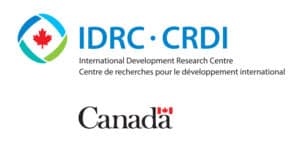Gender-Responsive Pandemic Preparedness, Prevention, Response and Recovery (PPRR)
Policy Brief
As governments and stakeholders prepare for future pandemics, frontline voices of health and care workers offer invaluable guidance. The imperative echoes clearly – to protect, empower, and involve women health workers. This entails safeguarding them from gender-based violence, ensuring a steady and gender-appropriate supply of personal protective equipment (PPE), and providing essential mental health support. In addition, specialized training programs, mentorship, and equitable compensation are urgently needed to empower women health workers for leadership roles in global health and health policy.
This policy brief is a call to governments to prioritize the safety, empowerment, and equitable treatment of women health workers in all their future pandemic preparedness efforts.


About the brief
Their insights reflect both common global concerns and region-specific challenges, highlighting the need for comprehensive policies that address the gender-specific needs of women health workers while considering regional and individual variations. The survey data (in quotes) and the results of our qualitative analysis form the foundation for the evidence-based recommendations presented in this policy brief. Key themes emerged that were common across countries with diverse socio-economic statuses and cultural contexts.
 Key Recommendations
Key Recommendations
- Governments must prioritize women health workers and their safety
- Governments must invest in capacity building of women health workers to respond in pandemics
- Health systems must become more gender-responsive
- Governments must conduct regular risk assessment of health systems infrastructure and the workforce
- Governments must ensure better working conditions, benefits, and incentives for women health workers
- Governments must invest in innovative, collaborative and gender-responsive research
- Governments must improve coordination and dissemination of information
This work was carried out with the aid of a grant from the International Development Research Centre, Ottawa, Canada. The views expressed herein do not necessarily represent those of IDRC or its Board of Governors.

